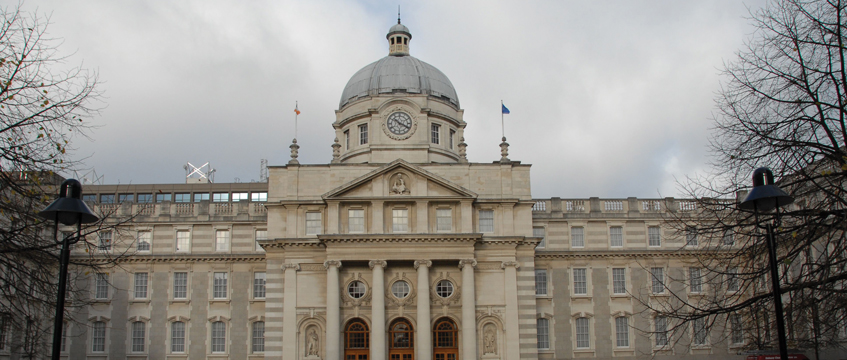U+I targets Irish government deal amid housing crisis
U+I wants to pitch for partnerships with the Irish state on housing developments following the country’s General Election.
The developer expects the incoming Irish government to unveil a brownfield regeneration strategy, which could lead to new private-public partnerships, according to U+I’s first development director for Ireland, Arlene van Bosch.
“There is a brownfield regeneration strategy coming out which will provide some opportunities in [Dublin’s] city centre and perhaps some suburban areas,” van Bosch says. “We are keeping an eye out and expect it to be released at the start of the second quarter.”
U+I wants to pitch for partnerships with the Irish state on housing developments following the country’s General Election.
The developer expects the incoming Irish government to unveil a brownfield regeneration strategy, which could lead to new private-public partnerships, according to U+I’s first development director for Ireland, Arlene van Bosch.
“There is a brownfield regeneration strategy coming out which will provide some opportunities in [Dublin’s] city centre and perhaps some suburban areas,” van Bosch says. “We are keeping an eye out and expect it to be released at the start of the second quarter.”
U+I hopes to demonstrate to Dublin City Council and the Irish state that it has a track record in delivering private-public partnerships.
“It’s a good concept,” van Bosch says. “We take the risk in that relationship and then share the benefits to help reduce some of the pressures. The benefit of partnering up is also a wealth of scale.”
Releasing land
The housing crisis has been a central part of the main parties’ manifestos ahead of the election on 8 February. By 2040, the Irish population is expected to reach almost 6m, with a need for 550,000 more homes.
If opposition party Fianna Fáil defeats the current governing liberal conservatives, Fine Gael, it is expected to adopt a similar approach.
“Fianna Fáil is largely supportive of Fine Gael; they’ve supported all of their housing strategies to date,” says Aidan Gavin, Cushman & Wakefield’s country head for Ireland. “Housing is a big part of both of their agendas.”
The current Irish government has already taken steps to use state-owned land for new homes. In 2018, it launched the Land Development Agency, with capital of €1.25bn, to build 150,000 new homes over the next 20 years.
The agency is focused on managing the state’s own land to develop new homes, including regenerate under-utilised sites.
On the housing crisis, van Bosch says: “I would say Dublin is where the housing crisis in Ireland is at its most acute. The state is the largest owner of land here, and we have experience in partnerships to help the state go about releasing those lands. This is an area where we could engage.”
The Irish government owns around 7,400 acres of land zoned for housing, according to data collated by architect and housing policy expert Mel Reynolds. This compares to Homes England’s 21,000 acres of land, equivalent to nearly 10,000 Wembley stadiums. The Land Development Agency declined to provide figures.
Waiting for Guinness
U+I has been pursuing a large-scale residential scheme in the Irish capital for some time, having been shortlisted as a potential partner to redevelop 12.6 acres of land for Guinness’s parent Diageo at its St James’ Gate brewery site since 2018.
Hines and local developer Ballymore, backed by Oxley, were also shortlisted but the process has run into delays. “We were shortlisted as one of three for the Diageo site, but no decision has been made on that,” said van Bosch.
When Diageo launched its search for a partner in October 2017, the company said it expected the selection process to take 12-18 months. A Diageo spokesperson says: “The process is ongoing and we remain as focused as ever on finding the right partners to deliver a world class urban quarter. We will take all the time necessary in the selection and evaluation process.”
U+I’s past PPP deals include its Mayfield Partnership in Manchester, overseeing a £1.4bn regeneration project across 30 acres in the city centre.
The partnership comprises U+I, LCR, Manchester City Council and Transport for Greater Manchester.
When completed, the overall Mayfield development will create 1,500 homes, more than 807,000 sq ft of office space, a 650-bedroom hotel and retail and leisure space.
To send feedback, e-mail anna.ward@egi.co.uk or tweet @annaroxelana or @estatesgazette











